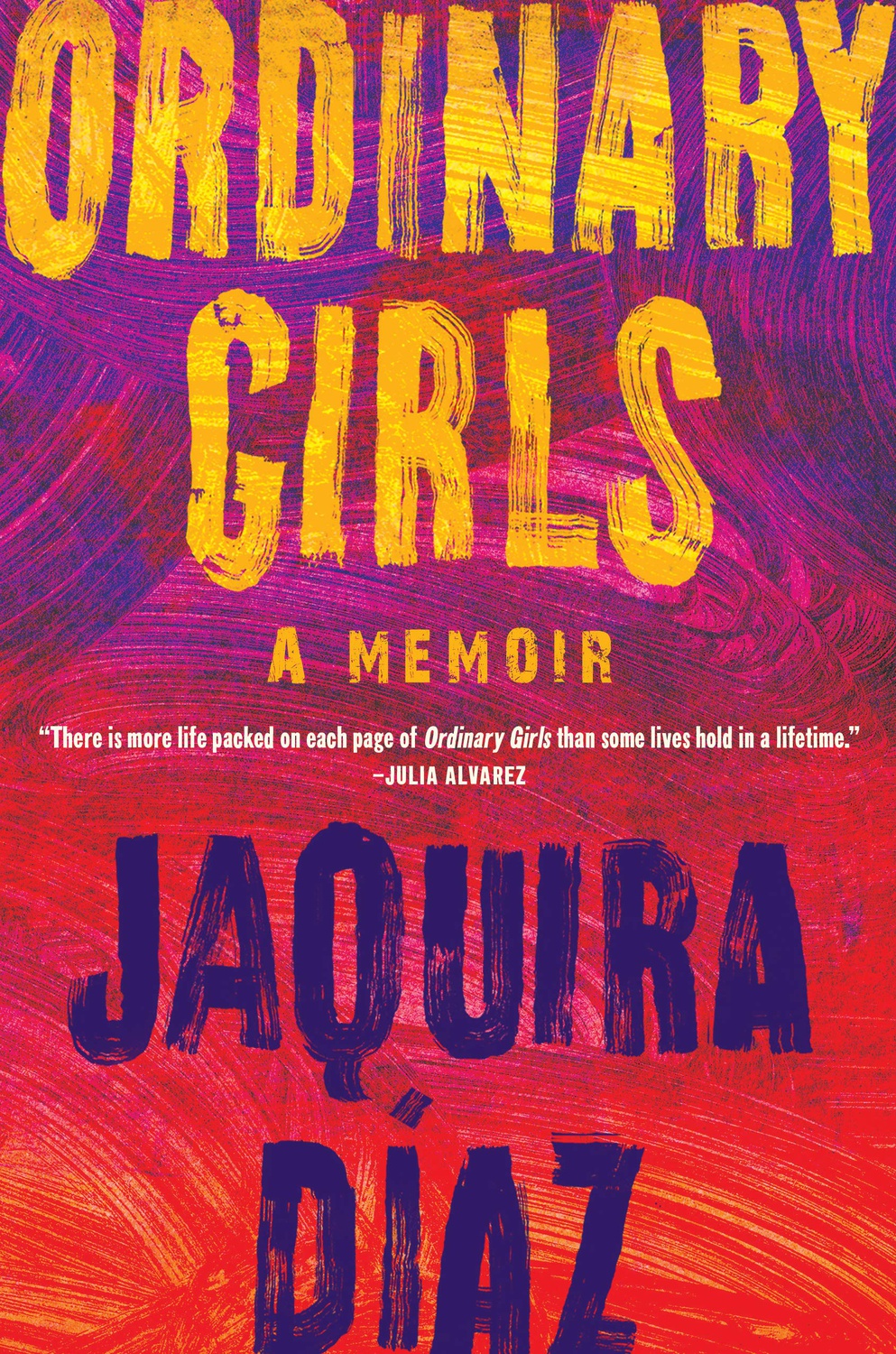
News
Cambridge Residents Slam Council Proposal to Delay Bike Lane Construction

News
‘Gender-Affirming Slay Fest’: Harvard College QSA Hosts Annual Queer Prom

News
‘Not Being Nerds’: Harvard Students Dance to Tinashe at Yardfest

News
Wrongful Death Trial Against CAMHS Employee Over 2015 Student Suicide To Begin Tuesday

News
Cornel West, Harvard Affiliates Call for University to Divest from ‘Israeli Apartheid’ at Rally
'Ordinary Girls' Is Anything But Ordinary
4.5 Stars
The women of “Ordinary Girls” are anything but ordinary. Jaquira Díaz’s memoir chronicles the vibrant color, joy, and tragedy of a life lived with inimitable passion. She charts, with poetic precision, a childhood spent in the housing projects of Puerto Rico and Miami Beach, a peripatetic adolescence of substance abuse and swinging fists, and an unexpected adulthood as an accomplished writer. Díaz does not shy away from difficult themes and topics: Rather, her memoir embraces the violence, poverty, addiction, sexual assault, and mental illnesses that shaped, if not her current life, at least her origins.
Díaz is an accomplished writer. Her work has been featured in numerous publications, including “The Best American Essays 2016” and Rolling Stone. She has received two Pushcart Prizes and multiple fellowships and grants. Now, she is also a formidable memoirist.
What makes Díaz’s memoir so compelling is, in the most fundamental sense, that it is not just about herself. She titled this book “Ordinary Girls,” after all. Her tale is at once a chilling study of a family dissolved by schizophrenia and infidelity, an anthropological dissertation of poverty and immigration, and a bildungsroman. In broadening the scope of her narrative, she embraces a paradoxically-personal anonymity: These things happen to other girls, other people, Díaz seems to say. This story doesn’t just belong to me.
In some ways, Díaz merely acts as a lens through which to tell the histories of others. She describes her mother vividly, oftentimes as an entity completely separate from herself. “[M]y mother owned every room she walked into,” Díaz writes. “She eclipsed the sun with her confidence.” She details her mother’s transformation from an evocative, evanescent force of nature to a woman broken and beaten by addiction and schizophrenia, a metamorphosis so powerful that it attains a plot line all its own, a digression from Díaz’s more personal development.
Díaz gives a similar attention and care to the trials and tribulations of other important figures in her life: her father’s transformation from a Puerto Rican revolutionary into a disenchanted womanizer, her ex-boyfriend Kilo’s evolution from a bitter youth into an early father, and her grandmother Mercy’s suicide. These figures take up pages of their own, equally as important to Díaz’s maturation as Díaz herself. Throughout her memoir, in fact, Díaz discovers and comprehends herself through her relation to others. In recalling a particular encounter with Kilo, she reflects, “That’s when it would hit me, that Kilo wasn’t that different from me, that maybe back then he’d also been dreaming about dying.”
Perhaps most striking about “Ordinary Girls,” though, is its lack of conventionality. It reads like a collection of personal essays rather than one cohesive narrative, perhaps naturally concomitant with Díaz’s resume. It also progresses pseudo-chronologically: Different periods of time overlap within each chapter, past and present and future converging all at once.
Which is not to say that the memoir lacks organization. Far from it, in fact — Díaz assembles “Ordinary Girls” much more by theme than by time period, a unique and surprisingly effective choice. Some chapters deal with sexual assault, others with certain members of her family — one chapter, entitled “Mother, Mercy” revolves around her grandmother’s choice to take her own life — and still others with juvenile deliquency.
In keeping with this unorthodox arrangement, “Ordinary Girls” is full of bold choices and experimentation. Díaz favors writing in second-person, but instead of addressing the reader, she speaks to her past self: “Fourteen. You’ll drink and fight, get high and fight. Fifteen. You’ll spend days smoking haze with your homeboy.” It’s a method that is particularly suited to a memoir that deals with intense personal development in which there is, at all times, a palpable gap between the professional writer and the angry teenager with a rap sheet and the naive child. There is such growth between all of these stages that they represent different people altogether, an idea capitalized upon when an adult Díaz dresses up as her adolescent self for Halloween.
But the best part about “Ordinary Girls” is its all-encompassing anonymity. Díaz begins and ends her story with “we,” first-person plural: “We were the wild girls who loved music and dancing,” she writes in the first chapter and at the end, she notes, “We are women now.”
It’s a story much broader than Díaz herself, more universal, even, than the sisters — both biological and not, found in school and on the streets — that feature so prominently throughout the memoir. “Ordinary Girls” is about a collective group who come from broken families, homes, and relationships. It’s about the ones who make it to womanhood, and, in conspicuous absence, about the ones who don’t.
It’s a story about sisterhood, which is an inclusive concept in name and in practice. This is not an undirected memoir of rampant narcissism; the whole point of “Ordinary Girls” is that Díaz did not stumble through her life on her own. It’s a collective, communal tale of death and survival and scars, about what it means to be a woman and what it means to love and what it means to hate and hit and shout. It’s not just poignant, but also deeply poetic and proud, and that is precisely what makes it such a provocative, prepossessing read.
Want to keep up with breaking news? Subscribe to our email newsletter.

